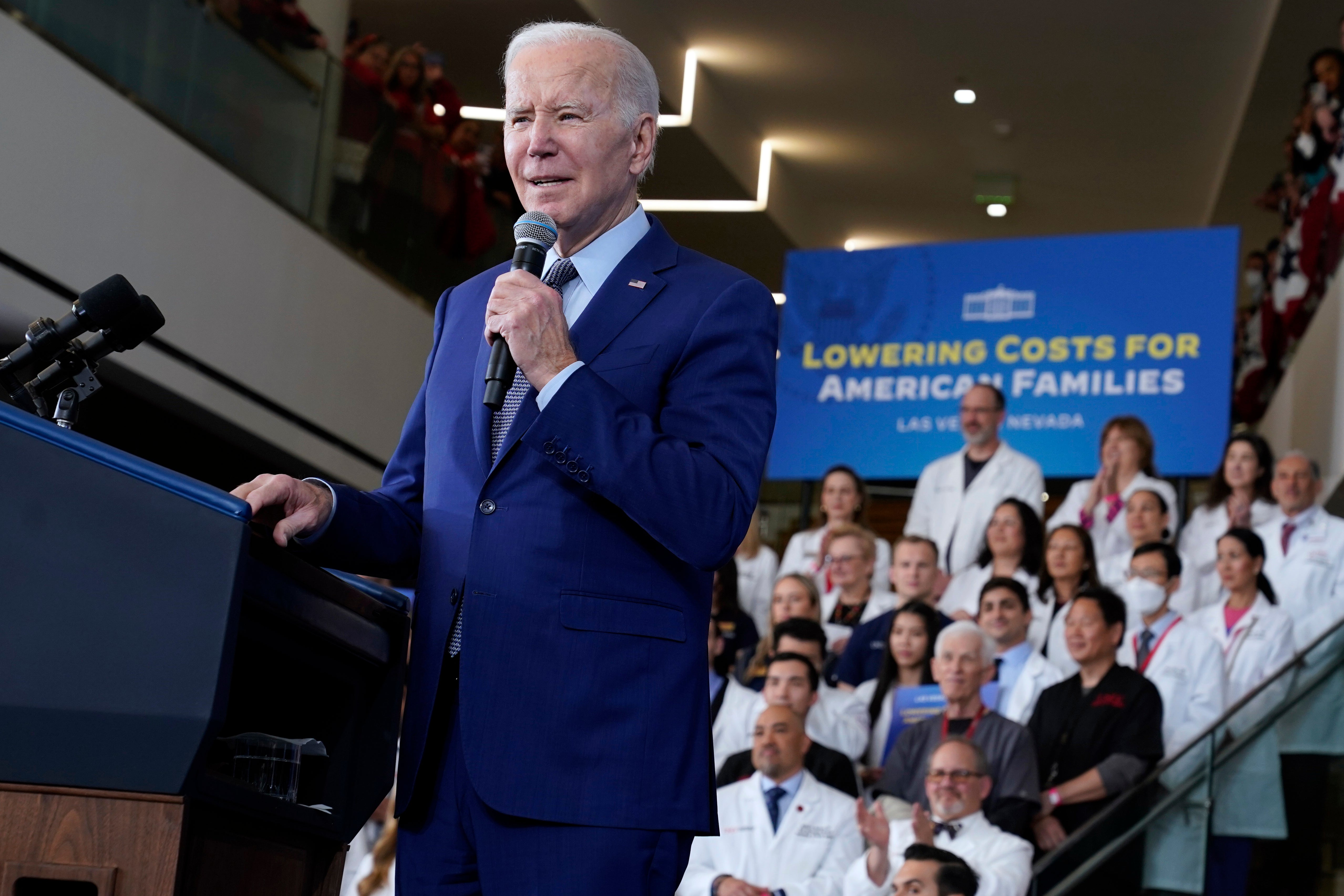Older Americans to pay less for some drug treatments as drugmakers penalized for big price jumps
Hundreds of thousands of older Americans could pay less for outpatient drug treatments beginning early next year

Hundreds of thousands of older Americans could pay less for some of their outpatient drug treatments beginning early next year, the Biden administration announced Thursday.
The White House unveiled a list of 48 drugs — some of them injectables used to treat cancer — whose prices increased faster than the rate of inflation this year. Under a new law, drugmakers will have to pay rebates to the federal government because of those price increases. The money will be used to lower the price Medicare enrollees pay on the drugs early next year.
This is the first time drugmakers will have to pay the penalties for outpatient drug treatments under the Inflation Reduction Act, passed by Congress last year. The rebates will translate into a wide range of savings — from as little as $1 to as much as $2,700 — on the drugs that the White House estimates are used every year by 750,000 older Americans.
The rebates are “an important tool to discourage excessive price increases and protect people with Medicare,” Chiquita Brooks-LaSure, the administrator for the Centers for Medicare and Medicaid, said Thursday in a statement.
As it readies for a 2024 reelection campaign, the Biden administration has rolled out a number of efforts to push pharmaceutical companies to lower drug prices. Last week, the White House announced it was considering an aggressive, unprecedented new tactic: pulling the patents of some drugs priced out of reach for most Americans.
“On no. We've upset Big Pharma again,” the White House posted on the social media platform X, formerly Twitter, last week, just hours after the announcement.
The U.S. Health and Human Services agency also released a report on Thursday that will help guide its first-ever negotiation process with drugmakers over the price of 10 of Medicare's costliest drugs. The new prices for those drugs will be negotiated by HHS next year.
With the negotiations playing out during the middle of next year's presidential campaign, drug companies are expected to be a frequent punching bag for Biden's campaign. The president plans to make his efforts to lower drug prices a central theme of his reelection pitch to Americans. He is expected to speak more on the issue later today at the National Institutes of Health Clinical Center in Washington, D.C.
—
Associated Press writer Tom Murphy in Indianapolis contributed.
Bookmark popover
Removed from bookmarks